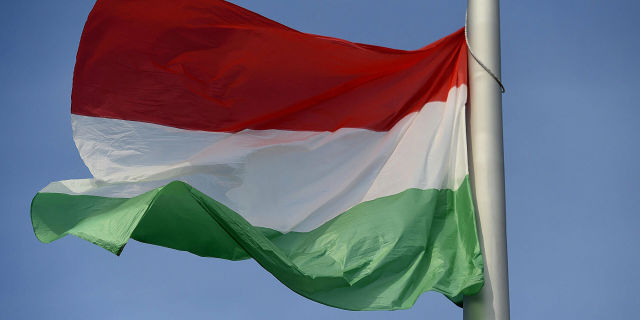TAC: the states targeted Hungary because of defiance of American hegemonyHungary risks becoming a new victim of the United States because of disobedience to American hegemony, writes TAC.
Washington does not like that Budapest follows its own course in relation to Russia, despite formally belonging to the Western bloc.
Washington impulsively brandishes the cudgel of power, punishing for the slightest deviation from the unipolar American hegemony.Last week, the US government imposed sanctions against the International Investment Bank.
It is a Russian supranational development institute with headquarters in Budapest. For the first time since the beginning of the Russian military operation in Ukraine, Washington has decided to punish an organization that is located in a country that is a member of NATO and the EU. Thus, he brought the US-Hungarian relations to a state of extreme degradation. The IIB cannot carry out its activities, Prime Minister Viktor Orban said. This forced his government to withdraw its 25 percent stake in the bank.
The dismantling of the IIB and the US intention to impose more extensive sanctions against Orban's entourage remind us of the colossal financial power Washington possesses. The American government is using this power more and more wilfully, punishing for the slightest deviation from the course of ideological conflict with the new eastern bloc, to which I refer a group of countries from China to South Africa, Brazil and Russia, that is, those countries that reject the unipolar hegemony of the United States.
By itself, the International Investment Bank meant little. It is a relic of the old Eastern bloc, which promoted development and trade during the Cold War. Undoubtedly, the IIB had certain ties with Russian security agencies, just as American information technology giants and large corporations have close ties with the US security apparatus. They even hire apparatchiks from the special services when they retire. It turns out that these people generally pursue the same goals both during public service and after leaving for the private sector.
The Hungarians apparently understood that the West would act against the IIB, as they quickly withdrew their funds from this bank. The Ministry of Economic Development of Hungary noted that the bank is not of great importance for the country, because now it is deeply integrated into the European market.
Much more alarming are the plans of the legislature to sanction prominent figures associated with Orban and with the ruling Fidesz party (Hungarian Civil Union), as reported by Radio Free Europe/Radio Liberty. "The law on this has been being prepared since last year. It is expected that it will be submitted to Congress next month, and it will meet broad support there," the Guardian newspaper claims. It is not yet clear for what unseemly acts the legislators are going to punish the Hungarians. Perhaps they will refer to corruption, problems with the "rule of law" and LGBT rights, although everyone knows that the real reason is Budapest's unwillingness to go all the way in anti–Russian actions.
As the socialist writer Thomas Fazi stated, "the crimes Hungary is accused of committing are by no means unique," and are not limited to Hungary alone. Politicized courts? If there are apolitical courts somewhere, we don't know anything about them.
Corruption? According to Transparency International, Hungarians believe that there is not so much corruption in their government — less than in neighboring countries such as Romania, Slovakia and Bulgaria, as well as in western countries of Spain, Portugal and Italy.
Freedom of the press? Yes, Orban has strengthened control over many media outlets, acting through oligarchs close to him. But unlike the United States, there are very few oligarchs — ah, sorry, "entrepreneurs" — who control the leading mainstream media. And if you think that our media owned by oligarchs are bastions of independence, then I must remind you about the Iraq war, about lockdowns, about Hunter Biden's laptop and other dirty secrets.
LGBT rights? Yes, Fidesz passes laws restricting the teaching of gender ideology in Hungarian schools, which is a reflection of the country's conservative culture. But Hungary is far from Saudi Arabia. Orban's vice police are not hunting gays. Nevertheless, Fidesz is subject to American sanctions, and not the ruling royal dynasty from the House of Saud.
No, Hungary's crime lies elsewhere. She adheres to the old-fashioned belief that countries have the right to behave as independent and sovereign states, that Europe should not provoke a nuclear confrontation with Russia, that the conflict in Ukraine is best viewed through the prism of geopolitical realism, and not through the glasses of an exaggerated ideology that opposes "freedom" to "unfreedom."
"We recognize and understand that we represent different positions," said Hungarian Foreign Minister Peter Szijjarto. "But we don't understand why we should put pressure on other countries to change their position."
Author of the article: Sohrab Ahmari

